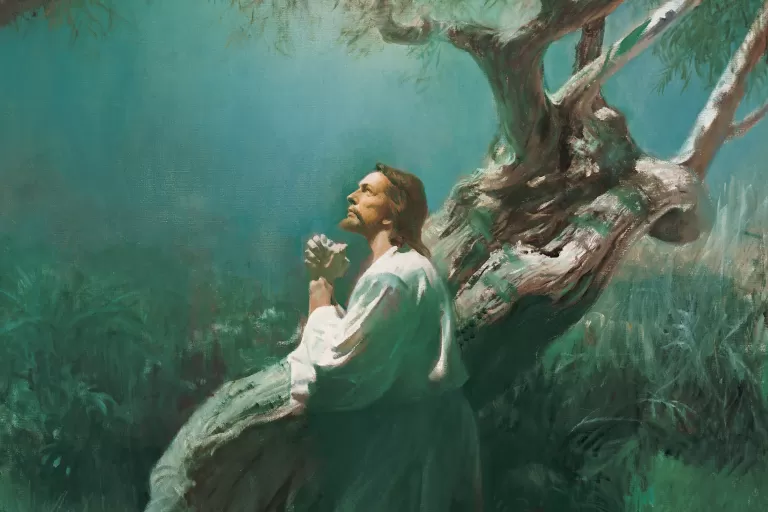
For any and all who have ever pondered the Communion of Christ, please consider this story:
On the last night of the Savior’s life He entered the Garden of Gethsemane with his disciples, all of them being subjected to feelings and emotions exquisitely intense. “…the disciples began to be sore amazed, and very heavy, and to complain in their hearts, wondering if this be the Messiah.” (Mark 14:32 JST). The record says that Jesus himself “…began to be sorrowful and very heavy.” Matthew 26:37). He was weighed down, even to the point of death. (Matthew 26:38). His burden must only have been made worse by the knowledge in His heart that His disciples, His closest friends, were doubting Him and complaining of Him at this crucial hour.
Well, Jesus went from them a short distance, He knelt and fell on His face on the ground saying, “Abba, Father, all things are possible unto thee; take away this cup from me; nevertheless, not my will but thine be done.” (Mark 14:36 JST).
What’s happening to Jesus? Clearly this moment in Gethsemane is much more than a heartfelt prayer. Whatever ‘this cup’ is that Jesus mentioned, He has been preparing for it from the very beginning. Whatever it is, it has crushed Him to the earth, and brought Him to the point of death. It is so terrible that “…there appeared an angel unto him from heaven, strengthening him.” (Luke 22:43).
And then Luke records what has to be one of the most meaningful verses in all of sacred writings, “And being in an agony he prayed more earnestly; and he sweat as it were great drops of blood falling down to the ground.” (Luke 22:44 JST).
The Lord’s body is racked with agony such that great drops of His blood were forced from every pore of His body. Isaiah had spoken of this moment when [quote] “…he hath borne our griefs and carried our sorrows…”
(Isaiah 53:4).
Since the beginning of time God had commanded his children to sacrifice animals as a type and shadow of this moment – a prefiguring, if you will. He had decreed that “the life of the flesh is in the blood: and I have given it to you upon the altar to make an atonement for your souls: for it is the blood that maketh an atonement for the [your] soul.” [end of quote] (Leviticus 17:11).
Since that time the children of Israel had taken their animals, placed their sins upon them, and then shed the animals’ blood upon the ground as an atonement, worshiping the Christ, the real Lamb of God, as they did so. That would have been the ancient version of a Sacrament Meeting!
In His body Christ did what no Pascal lamb could ever do. Our sins were not only placed on Him, but they passed through Him as well. The sacrificial lambs never felt the anguish that Christ did, which suffering, caused by us, caused Him “…to tremble because of pain…and to suffer both body and spirit…” (DC 19:18).
Here, and at the Cross, Jesus “…bare our sins in his own body…” (1 Peter 2:24).
Hence, we are asked to remember that body. It was the sacred instrument of the atonement allowing Him to “…justify many; for he shall bear their iniquities.” – Isaiah said. (Isaiah 53:11).
Christ’s blood – well, that was His life. To take His blood was to take the life of a God – and that was the atonement. That precious blood that dripped upon the ground that night was payment for our sins. As John said, “…the blood of Jesus Christ his Son cleanseth us from all sin.” (1 John 1:7).
Anciently the saints worshiped and pondered the meaning as a lamb died before them. The bread and water of the sacrament are sacred. By them we have communion with Him and remission of our sins through them.
Story Credits
Glenn Rawson – September 19, 2011
Music: O God the Eternal Father (edited) – Lex de Azevedo
Song: This Is the Christ – The Mormon Tabernacle Choir and Orchestra

